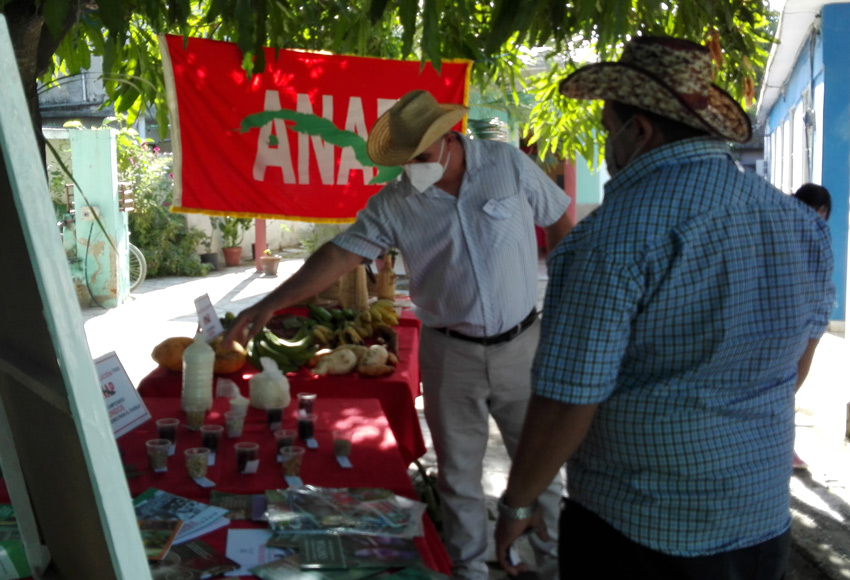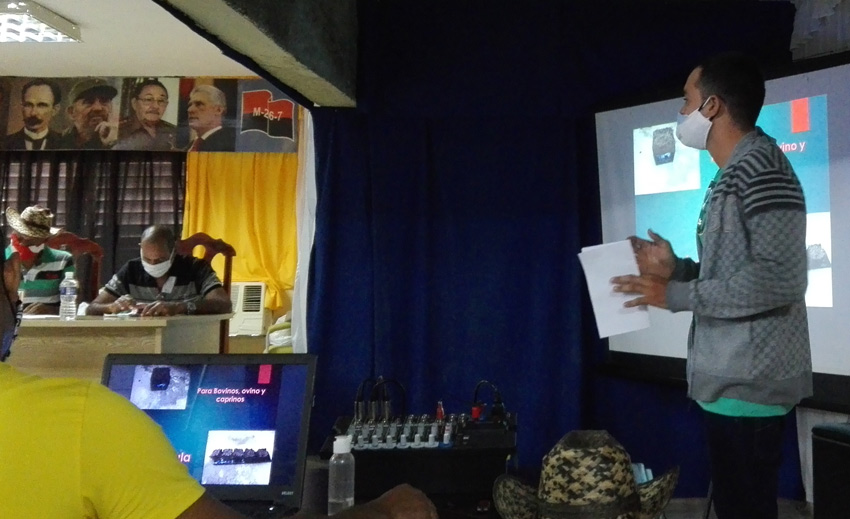
Taking advantage of local resources to feed livestock and doing so with the application of science and technology is a challenge for Juan Miguel Leyva Fidalgo, associated with the José Manuel Rodríguez credit and services cooperative (CCS, in Spanish), from the municipality of Jesús Menéndez.
Las Tunas, Cuba.- During his presentation, at the 22nd Forum of Science and Technology of the National Association of Small Farmers (ANAP) of the province of Las Tunas, he spoke of goals and realities, took out accounts, and showed that food production can be increased with cunning and effort.
 Multiplying dark-coat pigs, milling protein and fodder plants, and generating sources of decent employment are part of these purposes that will benefit his family and the productive unit; but also the rest of the territory and the country, which is what farmers are currently being asked to do.
Multiplying dark-coat pigs, milling protein and fodder plants, and generating sources of decent employment are part of these purposes that will benefit his family and the productive unit; but also the rest of the territory and the country, which is what farmers are currently being asked to do.
His presentation was one of 13 presented, after an extensive process in the ANAP grassroots organizations, with more than 515 investigations, and municipal events, always complying with the indicated measures to avoid the contagion with the new coronavirus.
In the meeting, all the topics were related to the increase of productive indicators, both in agriculture and livestock, the protection of the environment, and the improvement of the soils, with the application of certain natural products.
In this sense, the studies referring to obtaining earthworm humus through traditional techniques, the sowing of jack beans (Canavalia ensiformis) to return the nutrients that the soil loses due to erosion, and the use of charcoal to improve the fertility of the land stood out.
Also, innovation in the development of conservation agriculture, the weaving of various articles with water hyacinth fibers, the application of cow manure to multiply onion yields, the elaboration of nutritional blocks for livestock, and the production of beans with the support of the World Food Program (WFP).
ANAP in Las Tunas joins the wise decision to bring science and agroecology to the fields, two key elements to get ahead in a difficult context, marked by the international health crisis and the intensification of the U.S. blockade against Cuba.
Both alternatives, together with the 63 measures adopted by the Cuban State to promote the recovery of livestock and the production of various crops, can restore efficiency to the province's producing units and, consequently, provide more food to the families.





